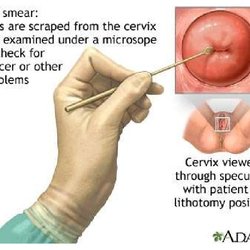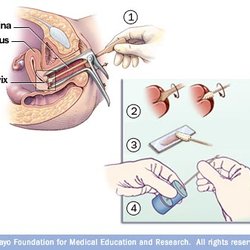Common questions on pap smears
What is a pap smear?
A pap test, also called a pap smear involves collecting cells from the cervix to detect early cancerous lesion.
Who needs a pap smear?
- 1. According to the guidelines by the American College of Obstetricians and Gynaecologists (ACOG), a pap smear is recommended for all women at the onset of sexual activity, or from the age 21 and onwards ( whichever comes first) every 2 years.
- Women over the age of 30, after 3 or more consecutive negative tests can usually space pap tests out to every 3 years. This includes women going through menopause.
- Women over the age of 65 can speak to their doctor about stopping the pap tests if the pap smear in the previous ten years were normal
However more frequent testing maybe recommended if:
- First sexual intercourse occurred before the age of 17.
- There is a history of Human Papilloma Virus (HPV) infection or previous abnormal pap smears
- There is a weak immune system eg: HIV or exposure to chemotherapy
- The woman is HIV infected: It is recommended that all HIV positive women have an initial pap smear, a repeat pap smear 5 months later and annual pap smears thereafter.
What if you had a hysterectomy?
Women who had a total hysterectomy because of cancer or abnormal cell growth should continue to have a pap test done every year to monitor for cancer of the vagina. Once 3 normal tests are detected they may be monitored less frequently.
Women who had the uterus removed but not the cervix will need pap tests as usual.
How do you prepare for a pap smear?
For 2 days before the pap test avoid:
- Using tampons
- Douching ( washing or rinsing out the vagina)
- Vaginal creams, medicines or suppositories
- Using vaginal hygiene products eg: sprays or powders
- Sexual intercourse
When is the best time to schedule a pap in your menstrual cycle?
It is best to have the pap smear done midcycle, about 10 -20 days after the first day of your last period.
How is a pap smear done?
The woman lies on the examination couch on her back. The doctor inserts an instrument called a speculum into the vagina to open the vagina and vie the cervix. A small plastic brush is used to obtain a sample of cells around the cervix. The procedure is not painful, but does feel uncomfortable.
What is the cost of a Pap Smear?
As of 2018, the laboratory charges a fee of R155 to process the pap sample. If you are a cash patient please pay an amount of R155 in cash to accompany the sample to the laboratory. The procedure of obtaining the pap smear sample itself is free and is included in the consultation fee. Most medical aids offer their female patients a annual pap smear, paid out of the preventative benefits ( ie: not out of savings). HPV testing is an optional extra.
When do I receive my results?
Results are available within 3 working days. A copy of the results will be emailed to you.
Please call 031 5634249 to book for your pap smear with Dr Hilda Ganesen. Please inform the receptionists that you will be coming in for a pap smear when booking an appointment.


